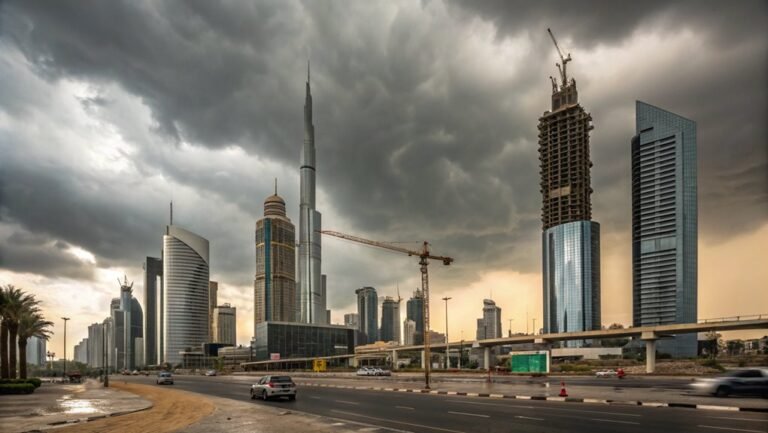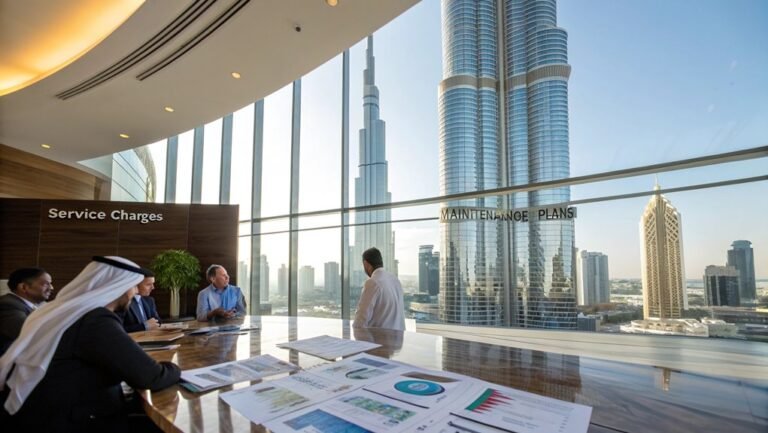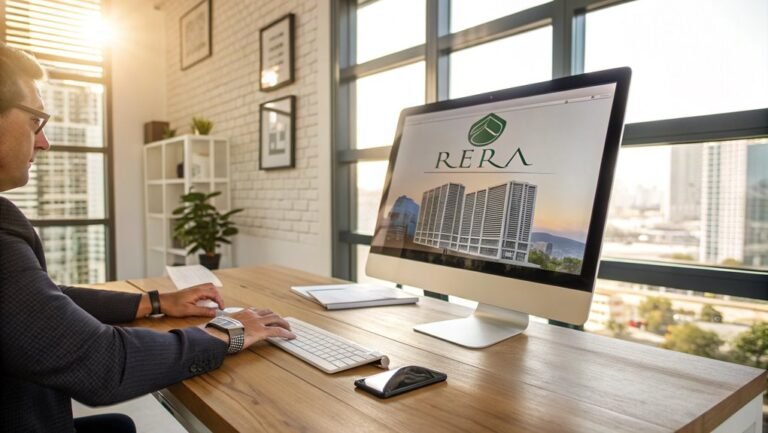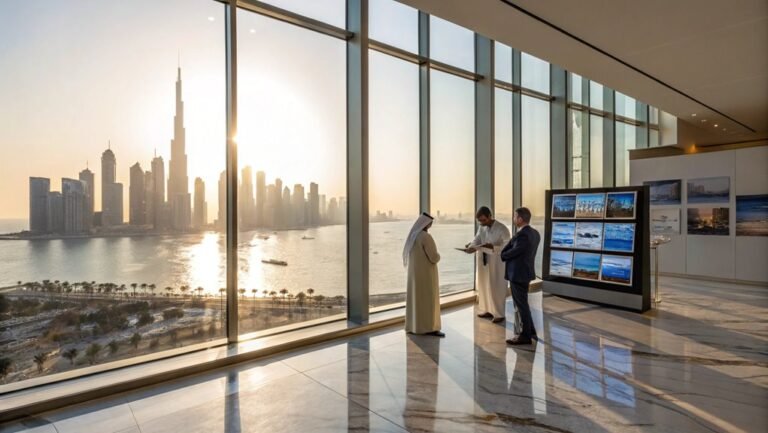How Does Leasehold Property Work in Dubai: A Step-by-Step Guide
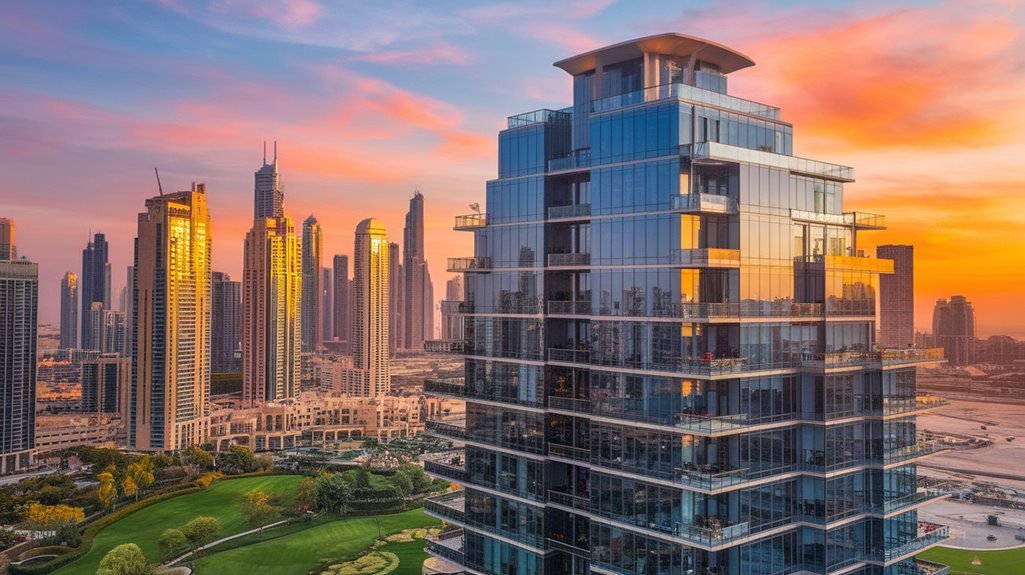
In Dubai, leasehold property allows you to lease a property for up to 99 years. Ownership reverts to the freeholder after the lease term.
You can occupy or rent the property, but significant modifications need the freeholder's approval. Legal formalities require adherence to Dubai Land Department guidelines.
Mandatory registration is required for leases over 10 years. Selling involves transferring ownership with necessary permissions.
Subletting requires landlord consent. Consider converting to freehold status if eligible.
Let us help you find the perfect property. Contact us to get started.
Familiarize yourself with these steps to ensure compliance. Make informed decisions in Dubai's property market.
Key Takeaways
- Leasehold properties in Dubai can have terms up to 99 years, with options for renewal.
- Occupancy, rental, and sublease of leasehold properties need freeholder's consent and adherence to terms.
- Major property modifications require written approval from the freeholder, with structural changes often restricted.
- Registration of leases over 10 years is mandatory with the Dubai Land Department, involving legal documents and fees.
- Selling or subletting requires permissions, proper documentation, and adherence to regulations, including Article 24 of Law No. 26 of 2007.
Lease Term and Ownership Rights
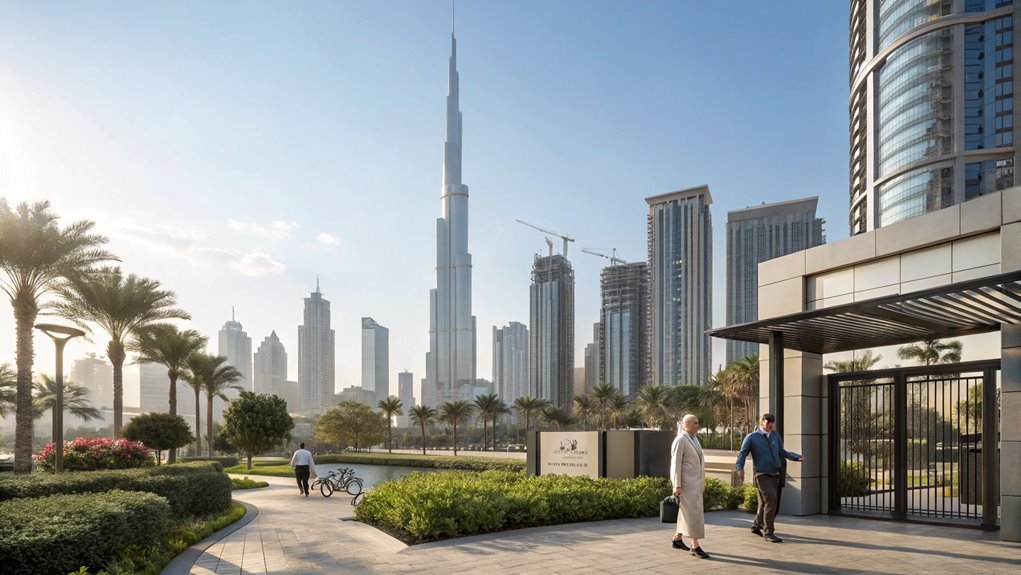
In Dubai, leasehold properties have terms up to 99 years, with a minimum of 25 years for UAE and GCC nationals. After this period, ownership reverts to the freehold owner, though lease renewal is possible. You only have rights to use the property during the lease and can't pass it to heirs or sell it outright. Freehold properties offer full ownership of both property and land, making them attractive to international investors. Instead, you can transfer the lease to another party. Understanding these terms is essential before entering a leasehold agreement.
Property Use and Modifications
In Dubai, leasehold properties allow you to occupy or rent a unit for up to 99 years, while the land remains under the freeholder's responsibility. Subleasing needs the freeholder's consent and adherence to lease terms. Renovations require written approval from the freeholder, with structural changes often restricted. Improvements must be approved by the landlord or management company, and unauthorized changes can lead to infractions. It's important to note that leasehold ownership does not include land ownership, meaning you hold rights under a lease agreement rather than full ownership. Typically, you'll pay fees for communal upkeep, while major structural repairs are the freeholder's responsibility.
Registration and Legal Formalities
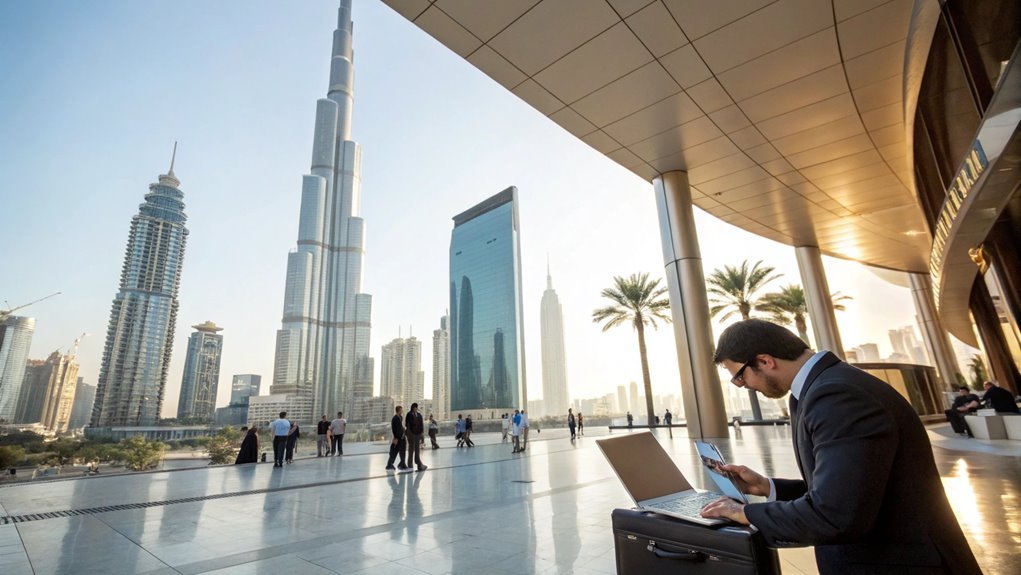
Navigating the registration and legal formalities for leasehold property in Dubai involves following guidelines from the Dubai Land Department (DLD). Begin by visiting the DLD's website or service center to complete the provisional lease-to-own e-form. For leases over 10 years, registration with the DLD is mandatory, ensuring adherence to regulations and securing ownership rights. Submit documents like the E.NOC, lease letter, and identification, and pay the necessary fees, including registration and VAT. Once approved, you'll receive a registration certificate confirming your legal rights. It's important to consider potential additional costs such as maintenance fees and service charges when planning your budget.
| Key Steps | Required Documents | Fees and Charges |
|---|---|---|
| Visit DLD or app | E.NOC, lease letter, ID/passport | Registration: AED 2,000/4,000 + VAT |
| Submit docs | Power of attorney if needed | Mortgage Fee: up to 0.25% of loan + AED 290 |
| Pay fees | Title deed, property documents | Admin Fees: AED 580 (apartments), AED 430 (land) |
Adhere to DLD regulations to secure your property rights.
Selling and Subletting
After handling the registration and legalities with the Dubai Land Department (DLD), you can now manage the selling and subletting of leasehold properties.
For selling, begin the ownership transfer through assignment, ensuring all permissions from the DLD or landowner are obtained. Confirm buyer eligibility and collect necessary documents like the lease agreement and a No Objection Certificate (NOC).
Negotiate terms and draft a Memorandum of Understanding (MoU). The buyer usually pays a 10% deposit. Complete the transfer at the DLD, concluding with a new title deed.
For subletting, obtain written landlord approval, execute a sublease contract, and register with Ejari, ensuring compliance with Article 24 of Law No. 26 of 2007 for legal protection. Remember that subletting in Dubai requires landlord consent to avoid penalties stated in Article 25, which can include lease termination if disregarded.
Conversion to Freehold
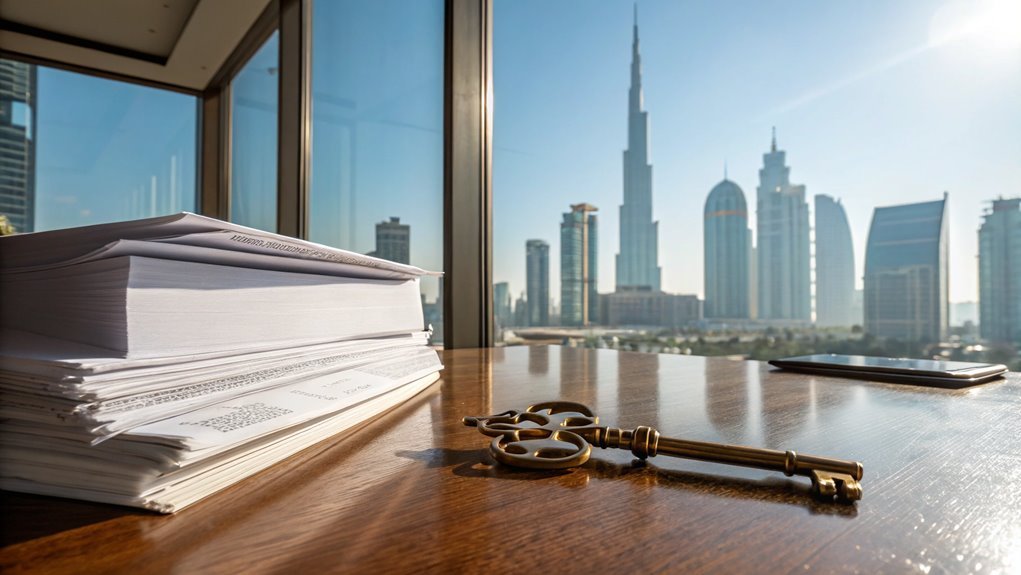
To convert leasehold property to freehold in Dubai, first verify if the property's location allows freehold ownership for non-UAE nationals per Dubai Land Department (DLD) criteria. Ensure there are no legal barriers and consult current regulations. Obtain approvals from the DLD and relevant authorities by submitting detailed applications. Engage a trusted legal advisor for due diligence and document preparation. Pay all related fees, including transfer and registration fees. Ensure the DLD updates property records and issues a new title deed reflecting the freehold status. Dubai's real estate market is attractive due to its strategic location and infrastructure, making it an appealing option for both local and foreign investors. Following these steps diligently ensures a successful conversion.
Frequently Asked Questions
What Are the Tax Implications of Owning Leasehold Property in Dubai?
Owning leasehold property in Dubai means you won't pay capital gains or property taxes. However, you'll face a 5% rental income tax and potential corporate tax. Be prepared for transfer fees, registration fees, and utility charges.
How Do Leasehold Properties Affect a Buyer's Mortgage Options in Dubai?
When buying a leasehold property in Dubai, you'll face mortgage terms influenced by the lease duration. Islamic finance options are available. Expect lower loan-to-value ratios and terms that must align with the lease timeframe.
What Happens to Leasehold Properties When the Lease Term Expires?
When your lease expires in Dubai, the property reverts back to the landlord, forfeiting any improvements made. To continue, negotiate a renewal or consider purchasing a new lease. Guarantee all agreements are registered with the Dubai Land Department.
Are There Any Specific Areas in Dubai Where Leasehold Properties Are More Common?
You'll find leasehold properties more common in Deira, Al Karama, Dubai Silicon Oasis, International City, and Dubai Sports City. These areas offer diverse residential and commercial options, with affordable housing, vibrant communities, and modern infrastructures ideal for leasing.
Can Foreign Investors Purchase Leasehold Properties in Dubai?
Yes, you can purchase leasehold properties in Dubai. They're available in specific areas outside freehold zones. You'll have rights for up to 99 years but won't own the land. Guarantee proper registration with the Dubai Land Department.
Conclusion
Navigating leasehold property in Dubai involves understanding several key elements. Lease term and ownership rights determine the duration and extent of your tenure.
Property use and modification rules outline what activities you can undertake. Registration and legal formalities are crucial to secure your rights.
Selling and subletting require following specific guidelines. Converting to freehold involves legal processes that must be adhered to.
Mastering these steps will help you manage your leasehold with confidence. This approach protects your investment and ensures a smooth property journey in Dubai's dynamic real estate market.
Let us help you find the perfect property. Contact us to get started.


